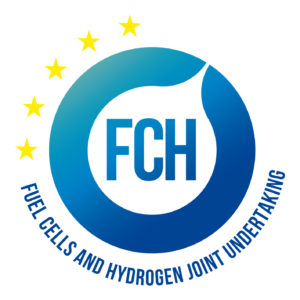The Norwegian Sustainable Energy Catapult Centre with partners are investing 20 million euros in the world’s first full-scale test centre for new energy carriers such as hydrogen and ammonia. The centre will be highly relevant for many stakeholders interested in green shipping.
The major initiative was launched by Norwegian Prime Minister Erna Solberg on 1 October 2020. The new centre will be based at the Sustainable Energy Catapult Centre’s maritime test centre in Stord, Norway. The building started in January 2021 and will house facilities for the testing of e.g. high-voltage solutions, ammonia, and hydrogen. The test centre is one of a kind:
— This centre will provide the industry with access to test facilities for future fuels that are not available anywhere else in the world. Here, small and large businesses alike can hire facilities to test individual components and complete systems and get help bringing products to market faster. We are looking forward to working closely together with the partners in ShipFC, says Øyvind Dale, COO of the Sustainable Energy Catapult Centre and coordinator for the centre’s tasks in ShipFC.
Important for a range of stakholder
The test centre will be responsible for the onshore testing of the 2 MW fuel cell system, which is to be installed in supply vessel “Viking Energy”. This is the first time an ammonia-powered fuel-cell will be installed on a vessel. The aims is that, Viking Energy, which is owned and operated by Eidesvik and on contract to energy major Equinor, will be able to sail solely on the clean fuel for up to 3,000 hours annually from 2024. In addition to being relevant for the ShipFC-partners, the test facilities will be available for other projects in the future:
— The on-shoretesting will be performed in Q1 2023, but we have already started preparing the test centre. When the testing in this project is done, the facilities and world-leading technology will be available for other projects. This project will therefore be important for a broad range of stakeholders in the industry, says Dale.
ShipFC project partners:
The University of Strathclyde (UK) and National Centre for Scientific Research Demokritis (GR) will assess safety criteria. Norwegian members of the European consortium include NCE Maritime Cleantech, Eidesvik Shipping, Equinor, Prototech, Yara, and Wärtsilä Norway, responsible for fuel systems, ship’s design and stability, and vessel energy management. Fraunhofer IMM (GE) will assist Prototech in the development and construction of the ammonia fuel cell system. Persee (FR) will provide expertise on energy management controls and data. Replicator vessel owners are StarBulk Management (bulk vessel), North Sea Shipping (offshore construction vessel) and Capital Ship Management Corp (container vessel).
This project has received funding from the Fuel Cells and Hydrogen 2 Joint Undertaking under grant agreement No 875156. This Joint Undertaking receives support from the European Union’s Horizon 2020 research and innovation programme, Hydrogen Europe and Hydrogen Europe research.



